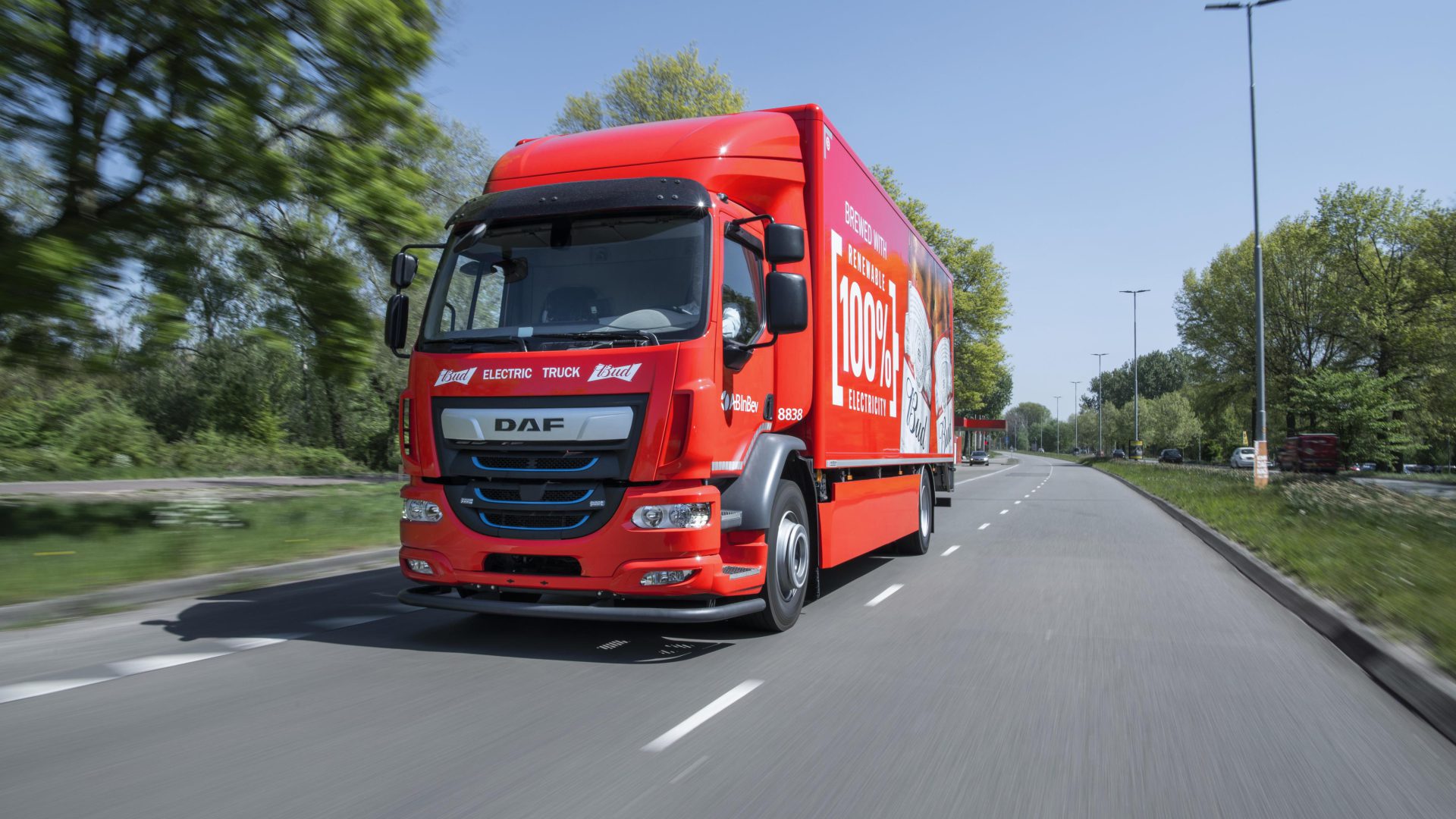
DAF to begin deliveries of its LF Electric truck
The zero-emission truck has a 260 kW (370 kW peak capacity) electric motor that is powered by a 282 kWh (252 kWh effective) cobalt and magnesium-free lithium iron phosphate (LFP) battery. This gives the LF Electric a range of up to 280 kilometres.
DAF to begin deliveries of its LF Electric truck

DAF started deliveries of its LF Electric distribution truck. The very first vehicles were received by the Dutch logistics service provider Nabuurs, which will be using the truck to supply the hospitality establishments of the AB InBev brewing company in Groningen.
The first of the LF Electric trucks to be delivered will be used by Nabuurs to supply the hospitality establishments in Groningen for the AB InBev brewing company, which wishes to reduce the CO2 emissions of its supply chain using the LF Electric. Ralf Kox, Logistics Manager at AB InBev: “Our ambition is to achieve Net Zero globally by 2040. The reduction of CO2 emissions is an important driver in the transport sector. Bud is now being brewed using 100 per cent renewable electricity and is being supplied on a fully electric basis to hospitality establishments in the city of Groningen”.
DAF Electric truck: the CF and LF range
Back in 2018, DAF introduced a fully electric truck to the market, namely the CF Electric. The latter has a fully electric range of around 200 kilometres. Efficient planning and smart charging of the batteries enable customers to have their trucks cover up to 500 fully electric kilometres a day.
On the other hand, the LF Electric is more suitable for lighter distribution tasks, thanks to its compact dimensions. The LF Electric is available as a 19-ton rigid (wheelbase 5.30 or 5.85 metres) with a payload allowance of 11,700 kilograms. The zero-emission truck has a 260 kW (370 kW peak capacity) electric motor that is powered by a 282 kWh (252 kWh effective) cobalt and magnesium-free lithium iron phosphate (LFP) battery. This gives the LF Electric a range of up to 280 kilometres, which is more than enough to serve the daily routes typically used for inner-city distribution.
Charging capacity
Using slow charging (400V AC, 22 kW, 3 phases) the battery can be charged from 20% to 80% in 6.5 hours. A full recharge (0% tot 100%) takes 12 hours. Fast charging (650V DC, 150 kW) is also possible. The battery can then be charged from 20% to 80% in only 60 minutes or in 2 hours when recharging fully from zero.

